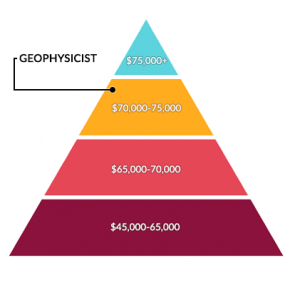All Categories
Featured
Table of Contents
Geophysical Surveys in Pearsall WA 2022
This work is progressively contracted out, so consultancies offer another source of employment. Consultancy companies vary in size, from very small business to large multinationals. Some consultancies are rather specialised in using specific geophysical techniques or working in particular areas, while others provide a more varied series of services to their clients.
The extraction of gas from landfill websites is another area of employment and this might grow in the future. Exploration business might carry out work for building and construction companies, public utility, mining companies and ecological agencies, so geophysicists may be used in any of these settings. Other companies consist of: geological surveysgovernment bodies and agenciesuniversities and research institutes.

Vacancies might be listed in the oil and gas sector press. Recruitment is impacted by oil rate variations and the level of competition for positions differs depending on this. Careers Days, which cover the full variety of geoscience professions and are usually attended by a variety of essential market employers, are run by The Geological Society.
Geophysics in City Beach Australia 2021
Some of the large oil and gas business provide a full two-year structured training program throughout the breadth of geophysics, consisting of the chance to experience operate in numerous teams before specialising in one area. Your training may include work on: existing wellsmagnetic and gravitational potential field data analysisresearchrock analysis. It's more typical for your preliminary training to be provided on the job.

There may be a probationary period during which you work along with a knowledgeable coworker. Competency-based appraisals take place regularly in a lot of companies. In smaller firms, and for academic posts, there is not likely to be any formal training - you'll be anticipated to start work straightaway and get skills as you go along.
If you work for a smaller sized business, you might find that you require to take obligation for organizing and moneying your own development and training. If you have a geology degree, membership of The Geological Society can be helpful for networking and for keeping up to date with the industry.
Geophysical Surveys: Definition & Methods in Brigadoon Oz 2022
You may likewise find it beneficial to join the PESGB (The Petroleum Expedition Society of Great Britain, which has a geophysics special interest group. After a probationary period, and once you've acquired some experience, you might advance to senior geophysicist, then team leader and then into a senior function in management.
The ease of motion in between roles depends upon the business structure. Study at Masters or Ph, D level in a subject associated to geophysics or geosciences might assist with your career advancement and progression. The work market within the oil and gas market is really based on rate and this might affect your chances for profession progression.
Not all jobs are reliant on the oil and gas markets. For knowledgeable geophysicists, freelance consultancy provides a great route for career development. You can also specialise in a particular area of geophysics. As a geophysicist, you're likely to have a number of tasks throughout your working life. Worldwide movement is crucial for dealing with peaks and troughs in various countries at various times.
Geology Careers: Degree Requirements, Cost & Salary in Beechboro Oz 2020
From geophysics, it's possible to concentrate on seismology (completing additional training to end up being a seismic interpreter) or to move into related locations such as engineering geology or risk forecast.
Choosing what to study in college is a hard option. Even if you know that your field of interest lies in science, what program of research study is right for you? If you make the decision to major in physical and life sciences and pursue a career as a geophysicist, you're getting ready for an exciting and rewarding occupation.
The first step to accomplishing your objective of ending up being a geophysicist is earning a degree. Even for entry-level positions in the field of geoscience, you'll need a bachelor's degree (a geophysicist college degree) from a recognized college or university. Some research positions require candidates to hold master's degrees or even Ph.
Geophysicist in St James Australia 2023
Doctoral degrees are particularly important if you plan to teach at a four-year organization. Geophysicists apply physics ideas and techniques to study the gravitational, magnetic, and electric fields of the earth. This furthers scientists' understanding of both the world's interior core and its surface area. Geophysicists need to have the ability to: evaluate rocks, pictures, and other pieces of information perform research study both in the field and in laboratories create maps and charts of their findings compose reports To accomplish all this, trainees need a specialized education for geophysicist careers.
As specified above, you'll require a bachelor's degree in geoscience or an associated discipline, such as a physical science or a natural science, to land an entry-level job. However students can likewise prepare by majoring in subjects like: Biology Chemistry Computer system science Engineering Mathematics Physics The above geophysicist majors use a more generalized approach to a single scientific discipline, however most programs require trainees to take several geology course.
Latest Posts
Geophysical Survey In Archaeology in Neerabup Australia 2022
Geophysicists in Glen Forrest WA 2020
Geophysical Survey in Lockridge Oz 2023